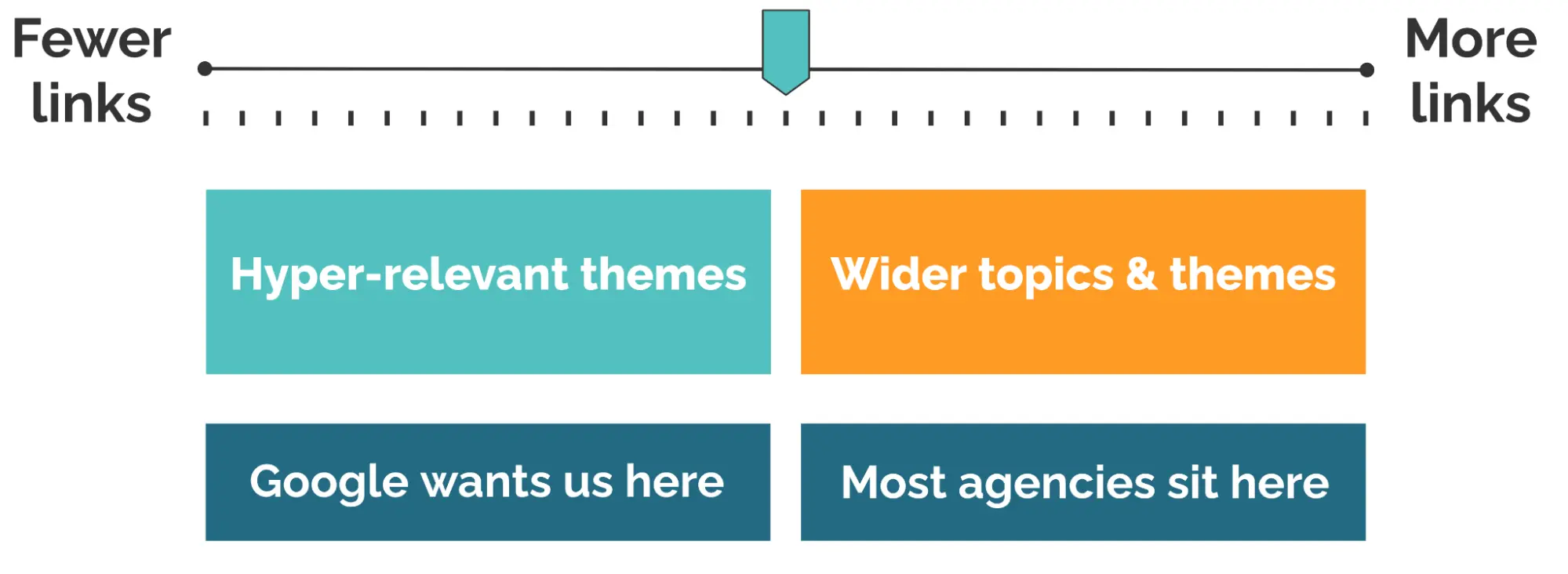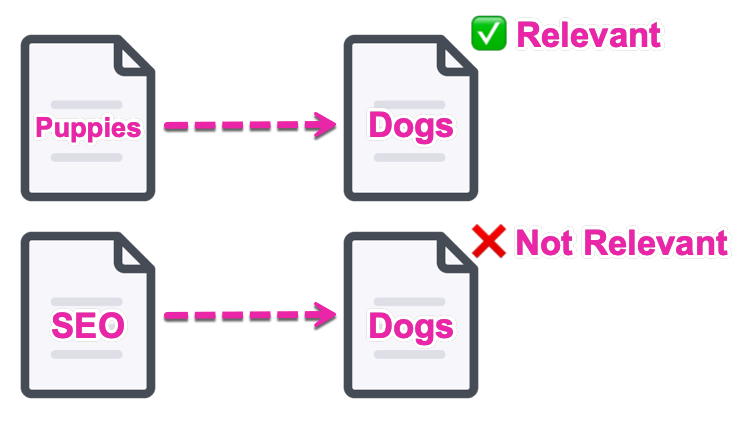Agencies are known to attach importance to link relevance, and the logic may sometimes not be fully understood by all. To understand the real importance and why it is a no-brainer, it is necessary to look at the function of a Search Engine. Every Search Engine has a single purpose – to help a user, find what he wants, in the shortest possible time. This needs to be bang on target. For instance, no user will like it, if a search query for football, throws up a list of sites that offer foot massage for the balls of the feet.
Search Engine spiders constantly search for content that can be tied to a particular domain, its sub-domains, areas of specialization and so on. This is achieved by indexing content and linking content that is relevant to the subject. This may have hopefully served as a primer to understand the technical requirements of Link Relevance, outlined below.
Why Is Link Relevance Important?
Link relevance helps search engines determine the quality and credibility of the content on a website. Links that lead users from high-authority websites are of particular importance in improving the visibility and ranking of a website in SERPs. This makes it necessary to have links that are relevant, explained in four points below.
Trustworthy, Authoritative
Links from authoritative websites can help to establish a website’s credibility and trustworthiness among search engine spiders. Websites with a high number of relevant links, are indicative of high quality content, and it is also an indication that other websites in the same niche regard the site as valuable.
Indicates Context
Search engines look for context and relevance of the content on a website. Linking to related and contextual content, helps to increase the website relevance to the search queries of users.
Improves Ranking
The purpose of SEO is to boost ranking, increase visibility and build a reputation. Relevant links from authoritative websites improve the rankings of a website in SERPs. Links are considered as a way to understand the relationship between different pages and to determine pages that are authoritative and relevant.
Boosts Traffic
Relevant links from authoritative websites can drive targeted and relevant traffic to a website. The number of such links contribute to the footfalls in a website, by attracting users looking for related information.
Link relevance is critically important in SEO – to establish a website’s credibility, boost ranking, and drive targeted traffic. The right strategy is to focus on building relevant links, instead of merely acquiring as many links as possible.

Broad Categories Of Link Relevance
While it is challenging to actually compartmentalize link relevance, here are a few common broad categories of link relevance.
#1 Contextual Relevance
This refers to links related to the content of the page. These links provide additional information or resources related to the topic under discussion.
#2 Temporal Relevance
This refers to links based on the timing of the information. For example, links to seasonal events or promotional events linked to holidays.
#3 Geographical Relevance
This refers to links based on the location of the user. For example, links to local businesses or weather information applicable to the user’s area.
#4 Topic Relevance
This refers to links based on the broader topic or theme of the page. For example, links to related articles or information on the same topic.

How Does Google Assess Link Relevance?
A burning question is – how does Google assess Link Relevance? This will help SEO professionals and digital marketing teams to come up with the right strategy and plan of action. For instance, it is widely believed that Google assesses Link Relevance based on various factors including the following.
Anchor Text: The text that describes the link needs to furnish adequate context and information about the target page and its relevance to the source.
Link Context: The content and context of the link needs to provide enough additional information about the relevance of the target page to the source.
Link Location: The location of the link on the source page should also justify and prove relevance. For instance, links located in a navigation menu or footer are not actually relevant, while links in the main content may be relevant if the context is right.
Link Authority: The authority and trustworthiness of the source page has a bearing on the relevance of a link. Links from high-authority, reputable sources are considered as more credible, relevant than links from sources that are regarded as low-authority.
Target Page Relevance: The relevance of the target page to the source page and the broader topic or theme of the source page does have an impact on the relevance of a link.
Google relies on various factors, including the above, to determine the relevance of a link and to assess the overall quality and value of a website. It is necessary to focus on high-quality, relevant links, to improve overall SEO and visibility of websites in SERPs. Google’s algorithms constantly evolve, and this may continuously impact link relevance assessment, and professionals are to remain updated about the changes to ensure nil negative impact.
Strategies To Establish Link Relevance
SEO is essentially an overall strategy comprising different various components or actions. Therefore, Link Relevance needs to be planned on the basis of the overall strategy, and needs to work alongside other aspects to ensure optimum results. Here are a few strategies for Link Relevance:
Pick Relevant Websites: Pick websites that are fully relevant to the niche or industry, and focus on such sites when seeking links.
Contextual Relevance: Contextually relevant content is the buzzword here. It is important to place a link in the appropriate section – for instance, a link to a page for a specific product, should be in a section that is related to the product.
Anchor Text: As mentioned above, Google looks at Anchor Text, and it helps to use appropriate anchor text when linking. This furnishes additional information about the target page and clearly highlights relevance.
High-Authority Sites: Insist on links from high-authority, reputable sites, as this carries more weight in terms of relevance and can have a positive impact on SERP rankings.
Relevant Content: It is of critical importance to post only high quality content that is relevant and contextually appropriate to target audience. This also has a domino effect of attracting relevant links which can in turn improve website’s optimization results.

